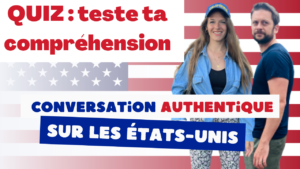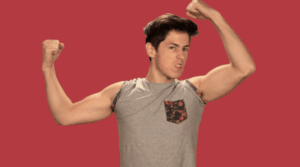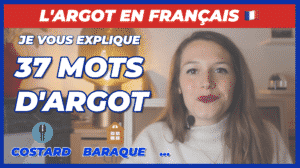In this video, I present 15 French homonyms. These words are pronounced the same, but don't have the same meaning. It's important to know these differences to avoid misunderstandings. If you liked the video, don't hesitate to like it and subscribe to the channel, it encourages me a lot! Thank you
- 0:00 - Introduction
- 1:05 - Lawyer / Lawyer
- 2:12 - Wall / Blackberry / Blackberry
- 3:22 - Wine / Twenty
- 4:00 - Count / Story / Count
- 5:54 - Song / Fields
- 6:31 - Hundred / Blood / No
- 7:31 - Almond / Fine
- 8:41 - Author / Height
- 9:48 - Port / Pork
- 10:46 - Mother / Sea / Mayor
- 11:50 - Mud / End
- 12:39 PM - Milk / Tart
- 2:24 PM - Ok / Hockey / Hiccup
- 15:35 - Neck / Cost / Strike
- 16:56 - Hunger / End
Video transcript on French homonyms
Hello everyone. I'm Elisabeth from HelloFrench. I hope you're well and that your learning French is going well. Today, we're going to take a look at French homonyms.
So, these are words that are pronounced in the same way, sometimes even written in the same way, i.e. identical, but with different meanings. So these words mean different things, even if they sound the same. There are a lot of homonyms in French, so I think I'm going to make several videos on this theme. To see all the videos on this theme, and indeed all my videos, remember to subscribe to my channel.
Before you start, remember to activate the subtitles to help you understand the video better.
Let's start with lawyer and lawyer. There's the lawyer, which is a profession. He's a person who can help you when you have legal problems or problems with the law.
So, for example, I might say, "I'm getting divorced, so I'm looking for a lawyer. That's one person.
The other avocado is a fruit. So, it's an oval shape like this, it's brownish and inside, it's green and there's a big stone. This fruit is also eaten a lot as a vegetable, for example, I could say "this lunchtime, I had a salad with tomatoes, onions, feta cheese and avocado".
Let's look at three words that are pronounced the same, but have different meanings. Wall, blackberry and ripe. The first wall is the one found in houses, for example, where there's a wall and a floor. It's what separates rooms.
Then there are blackberries, which are fruits. They look like raspberries, but black.
For example, I can say "I put blackberry jam on my bread".
Finally, there's mûr, used as an adjective. An adjective is a word we use to describe something or someone.
So the adjective ripe means that something is ready. So it's often used for fruit. For example, I can say "this peach is ripe, I can eat it".
Let's take a look at wine and twenty. There's wine, which is an alcoholic beverage made from grapes. In France, we make a lot of wine: white, red and rosé. So I can say "I'll have a glass of wine, please".
Then there's the twenty. For example, I could say "yesterday I was 19, today's my birthday, I'm twenty".
Let's take a look at compte, contes and comte. Here, three words that are pronounced the same, but have different meanings.
So the first account is the bank account. For example, I might say "I've opened an account at a new bank" or "I've just withdrawn 50 euros from my account".
We also use compte in this sense, for example to say "I'm doing the accounts". So, to say you're looking at where you stand with your money, to say "I'm doing the accounts to see how much money I have left at the end of the month". Or, for example, at the restaurant, to divide up everyone's share, to know what each person owes in money, I can say "I'm doing the accounts, Coralie, you owe 20 euros, Jonathan, you owe 12 euros".
Then there's the tale we tell. It's a story, a narrative. For example, I might say, "I tell my daughter the tale of Little Red Riding Hood before she goes to sleep. I tell her the story. Finally, there's the Count, who is the Countess's husband. So, when we talk about the count, it's a title of nobility, a bit like a duke or a prince.
By the way, you may have heard of Alexandre Dumas' The Count of Monte Cristo. It's a book about a count.
Now let's look at the song and the field. For example, I might say "I wish you a Merry Christmas is a Christmas song".
We sing it every year for the festive season. Then there's the field we're cultivating, so we're going to grow things.
For example, we can have a field of wheat, a field of potatoes, a field of peppers. Now let's look at a hundred, blood and no blood. So, the first hundred, so, for example, if I say, I'm going to count to a hundred. 95, 96, 97, 98, 99 and 100. I could also say "I'd like to live to a hundred".
Then there's the blood that runs through our veins, so blood is the red liquid that flows through our body. For example, I could say "I gave my blood to the Red Cross". Finally, there's the sans we use to say not.
So it's a way of marking the absence of something.
For example, I might say "I drink my coffee without sugar", so it's the opposite of with. I drink my coffee with sugar, so I use sugar, and I drink my coffee without sugar, so I don't use sugar.
Let's take a look at almonds and fines. So, the first almond is a fruit, a dried fruit that's small like this and brownish, that we eat like cashews or pecans, pistachios. For example, I could say "almonds are a very healthy dried fruit, full of good fats for the body". In France, we also cook a lot of things with almonds, for example, marzipan, which is almond paste, or the galette des rois.
The other fine is much worse. When you get a fine, it means you're going to have to pay something because you've committed an offence, because you haven't complied with something.
For example, I could say "I've been fined for speeding with my car".
Or, "I was fined 135 euros because I wasn't wearing the mask in the metro".
Now let's look at author and height. The first author is someone who writes a book. He's a writer. For example, I might say, "William Shakespeare wrote the play Romeo and Juliet. He's the one who wrote it. The other word, height, is used to talk about the size of something or someone.
For example, I might say "this wall is three meters high". There's also a sport called high jump.
It's an Olympic discipline, it's athletics, so it consists in jumping over a bar, and in fact, you're going to keep raising this bar to a higher height, and the aim, obviously, is to jump as high as possible.
See now port and pork.
The first port is often used to refer to a fishing port, for example.
It's where the boats meet. For example, I could say "I went to the port to buy some fresh fish that the fishermen had just brought in". Recently, too, there's been a lot of talk about the port of Beirut, where there was an explosion and a fire. The second pig is a synonym for pig, so it's an animal. We use porc to refer to meat that comes from the pig, so, for example, I could say "I ate pork for lunch" or "I don't eat pork because I'm a vegetarian".
Let's take a look at mother, sea and mayor. The first mother is a synonym for mother. For example, I could say "my mother has three children: my two brothers and me". There's the sea, which is a large body of water where boats go, for example the Mediterranean Sea or the Black Sea, it's a bit like the ocean. For example, I could say "this weekend, I went to the beach and swam in the sea". Finally, there's the mayor, used to refer to someone who has been elected after an election to be in charge of a city.
For example, I could say "Anne Hidalgo is the mayor of Paris, she was re-elected after elections in June".
There's the mud and the tip. Mud is a mixture of earth and water. So it's a bit liquid and brown in color.
For example, I could say "I've been walking in the woods on dirt and it had rained, my shoes are full of mud, they're dirty". Then there's the tip.
B o u t is a word we use to talk about different things.
For example, I might say "I could have a piece of cake" to talk about a piece of cake. So there, we use it to talk about a part of something. But we also use the word bout to talk about the end of something or an object.
For example, I can say "I went to the end of my street" to say that I've reached the end of my street. We also use the word bout to talk about concrete things, but also to talk about more philosophical things.
For example, I could say "I went to the end of myself in this race". I jogged and gave it my all, I went to the limit of my physical capacities.
For example, you could also say "Patricia pushes me to the limit". This means that Patricia gets on my nerves and pushes me to my limits.
Then there's milk and ugly, the adjective. So the first milk is a white drink, like cow's milk. I could say "every morning, I put milk in my cereal". It's also a drink that's very often given to babies.
The second, ugly, is an adjective, the opposite of pretty or beautiful.
We use it to say that something is really not beautiful. For example, I can say "this painting is really ugly, I don't like it".
Now let's look at ok, field hockey and hiccups. The first ok is for yes. For example, if someone says to me, "Would you like to have a pizza? It's a different way of saying yes in French.
The second field hockey is sport, so there's ice hockey and field field hockey, but often the most common field hockey is on ice. It's a sport that comes from Canada. For example I might say "this weekend I went to see a field hockey match, the score was very close." Finally, there's the hiccup, which is a little sound we make, we say "I have hiccups", it's when we go like this.
Sorry about the imitation. It's often said that you have to scare someone to get them over the hiccups.
Now let's look at neck, cost and stroke. The first neck is this part. So it's the part of the body that connects the head, the face with the rest of the body.
For example, I might say "look at my neck, I've put on a new necklace".
Then there's the cost we use to talk about the price of something.
For example, I might ask someone "how much does it cost to get to the airport?". "The cab fare is 50 euros". Finally, there's the coup, c o u p, a word that's used a lot in French in many expressions, and which in itself means a lot of things.
So it's often used to refer to the notion of hitting. For example, to punch or kick a ball when you're playing soccer. I think I'm going to make a video devoted to this word coup because, as I was saying, there are really a lot of expressions we use like coups de soleil, coup de coeur, there are really a lot of them.
Finally, the last namesake we're going to look at today is hunger and end. The first hunger is when we need or want to eat. We feel in our belly that we need to eat food. For example, I might say "I'm so hungry, I could eat two pizzas" or "I'm so hungry, I don't have breakfast". The other ending is to talk about something that's coming to an end. Here, for example, I could say, we've reached the end of the video.
I hope you enjoyed this video and learned something new. If so, remember to put a like on it and, above all, subscribe to the channel to see new videos and learn more things in French. See you soon.








